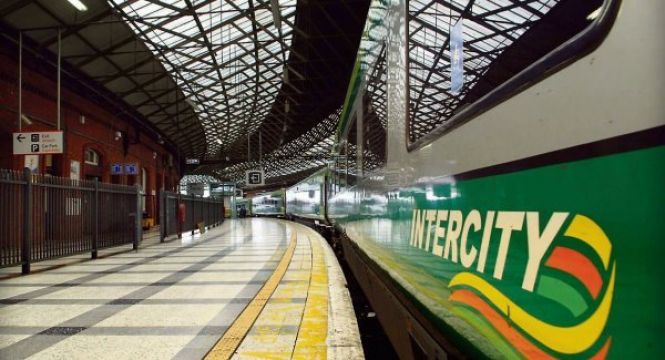Irish rail was bombarded with complaints from passengers after one of their intercity services ended up taking more than seven hours with most passengers not arriving at their destination until 2.30am.
In emails to the rail operators, members of the public wrote of being left standing in the pouring rain on a platform as they waited for another train.
The delay happened in February when a service between Dublin and Cork was hit by a “fatal failure” of a water pump, according to an internal investigation report from Irish Rail.
It said delays for passengers on board, and several other services also hit, were “very significant” and that lessons needed to be learned from what had happened.
The report also said that the line was likely to get even busier over the next few years so that standby locomotives and drivers might need to be in place at key locations to avoid similar incidents.
In a barrage of complaints and requests for compensation from passengers, one wrote of the “dreadful experience and conditions” they had endured on their journey.
Their email said: “I understand that an engine breakdown is something that can’t be helped. The staff member on the train making announcements did his best. However, the lack of a plan of action for a breakdown was really surprising.
“The worst part was being dropped at Portarlington [Co Laois] and left standing in pouring rain for an hour without anyone appearing to know where [or] when a train would arrive.”
Another wrote on behalf of their elderly father who they were worried might suffer ill effects after being left stuck in Portarlington and arriving home at 4am.
“One can understand that a train can break down from time to time and, if addressed properly, while an inconvenience, we can accept that these things happen and move on,” they wrote.
“What one cannot understand and what is completely unacceptable is leaving passengers stranded on an open platform in Portarlington late at night for two hours. In what world is this acceptable?”
One passenger said they had no food or drink for seven hours because of the major delay to the service.
“The Irish Rail staff were very informative about what was happening throughout the ordeal but … after being stuck on a train for 2.5 hours on the tracks with no refreshments offered or provided, toilets on trains not working, and overflowing, the smell and the heating on the train turned up, you could barely breathe,” they wrote.
Other complaints from a sample of sixty released by Irish Rail under FOI wondered how “one engine failure ahead of us can cripple the entire network” while another wrote of “everyone being frozen and exhausted” waiting for a replacement train.
A passenger headed to Tralee described how they had not arrived until 4am in the morning while another said it was “very disgraceful on the part of Irish Rail”.
The internal investigation report said there were multiple areas for improvement including improved feedback to its control centre and not enough staff at Portarlington to keep passengers informed of what was happening.
It said social media communications should have been more definitive that taxis would be available when passengers arrived at their destination and asked whether the best “rescue” option for the broken-down train had been put in place.
“Service frequency is forecast to increase significantly over the next number of years,” the report concluded.
“To enable slicker recovery of these failures, and reduce overall knock-on disruption to customers, the medium-term objective should be to have standby locomotives and standby drivers in place at key locations across the network.”
Asked about the incident on February 21st, a spokesperson for the rail operator said they apologised to all those disrupted on the day.
They said: “While delays of this scale are extremely rare, and the particular location was challenging given track layout either side of the train with the fault, we review the response on the evening to ensure that all can understand how we can improve response in major incidents for the benefit of our customers.
“All customers who booked online were automatically compensated for the delay, and refund application forms were provided to all other customers on the service.”







